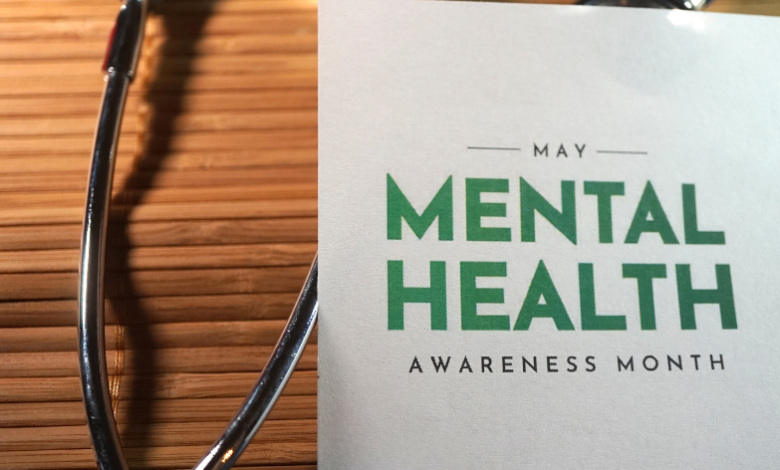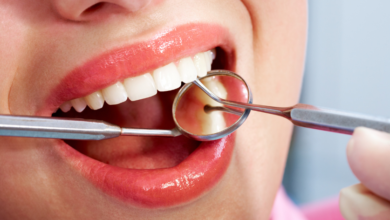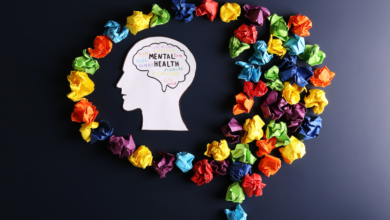Comprehensive Guide to Mental Health Recovery with Learn Do Grow

Introduction
Understanding Learn Do Grow
Learn Do Grow is an educational and wellness website based in the U.S., focused on mental health recovery. It offers interactive modules aimed at helping users manage post-pandemic stress and burnout. This guide explores the various aspects of mental health recovery, providing insights into stress management, mental wellness, and practical steps for recovery.
Importance of Mental Health Recovery
In the wake of the COVID-19 pandemic, mental health has become a crucial topic. The pandemic has exacerbated stress and burnout, making mental health recovery essential for overall well-being. Effective management of mental health can improve quality of life, productivity, and interpersonal relationships.
Types and Categories of Mental Health Issues
Anxiety Disorders
Generalized Anxiety Disorder (GAD)
Generalized Anxiety Disorder is characterized by excessive worry about various aspects of life, often without a clear cause. Symptoms include restlessness, fatigue, and difficulty concentrating.
Panic Disorder
Panic Disorder involves recurrent, unexpected panic attacks, which are sudden periods of intense fear that may include palpitations, sweating, and feelings of impending doom.
Social Anxiety Disorder
Social Anxiety Disorder is marked by intense fear and avoidance of social situations due to feelings of embarrassment, self-consciousness, and concern about being judged or humiliated.
Mood Disorders
Depression
Depression is a common mood disorder that causes persistent feelings of sadness, hopelessness, and loss of interest in activities. It can significantly affect daily functioning.
Bipolar Disorder
Bipolar Disorder involves extreme mood swings, including emotional highs (mania or hypomania) and lows (depression). These mood changes can affect sleep, energy levels, behavior, and judgment.
Stress-Related Disorders
Acute Stress Disorder
Acute Stress Disorder occurs after a traumatic event, causing anxiety, dissociation, and other symptoms that typically last for a short period.
Post-Traumatic Stress Disorder (PTSD)
PTSD is a chronic condition triggered by experiencing or witnessing a traumatic event. Symptoms include flashbacks, nightmares, severe anxiety, and uncontrollable thoughts about the event.
Symptoms and Signs of Mental Health Issues
Common Symptoms
- Persistent sadness or depression
- Confused thinking or reduced ability to concentrate
- Excessive fears or worries
- Extreme mood changes
- Withdrawal from friends and activities
Uncommon Symptoms
- Delusions or hallucinations
- Inability to cope with daily problems or stress
- Excessive anger, hostility, or violence
- Suicidal thinking
Causes and Risk Factors
Biological Factors
- Genetics: Family history of mental health disorders increases the risk.
- Neurotransmitters: Imbalances in brain chemicals can affect mood and behavior.
- Brain Structure: Abnormalities in brain structure can contribute to mental health issues.
Environmental Factors
- Trauma: Exposure to traumatic events, especially in childhood, increases the risk.
- Stress: Chronic stress can lead to anxiety and depression.
- Lifestyle: Poor diet, lack of exercise, and substance abuse can affect mental health.
Lifestyle Factors
- Social Isolation: Lack of social support can exacerbate mental health issues.
- Sleep: Poor sleep habits can contribute to mood disorders.
- Physical Health: Chronic illness can increase the risk of mental health problems.
Diagnosis and Tests
Psychological Evaluation
A comprehensive psychological evaluation includes interviews, questionnaires, and observation to diagnose mental health conditions accurately.
Diagnostic Criteria
Mental health professionals use criteria from the Diagnostic and Statistical Manual of Mental Disorders (DSM-5) to diagnose mental health conditions.
Laboratory Tests
In some cases, lab tests may be used to rule out physical health issues that could be causing symptoms.
Treatment Options
Psychotherapy
Cognitive Behavioral Therapy (CBT)
CBT is a common form of therapy that helps individuals identify and change negative thought patterns and behaviors.
Dialectical Behavior Therapy (DBT)
DBT combines cognitive-behavioral techniques with mindfulness practices to help individuals manage emotions and improve relationships.
Interpersonal Therapy (IPT)
IPT focuses on improving interpersonal relationships and social functioning to help reduce symptoms of depression and other mental health issues.
Medications
Antidepressants
Antidepressants can help reduce symptoms of depression and anxiety. Common types include SSRIs and SNRIs.
Anti-Anxiety Medications
Benzodiazepines and beta-blockers are often prescribed for short-term relief of severe anxiety symptoms.
Mood Stabilizers
Mood stabilizers, such as lithium and anticonvulsants, are used to treat bipolar disorder and prevent mood swings.
Lifestyle Adjustments
Exercise
Regular physical activity can help reduce symptoms of depression and anxiety.
Nutrition
A healthy diet can improve overall mental health and well-being.
Sleep Hygiene
Establishing a regular sleep routine and ensuring adequate rest is crucial for mental health recovery.
Preventive Measures
Stress Management Techniques
Mindfulness Meditation
Practicing mindfulness meditation can help reduce stress and improve emotional regulation.
Deep Breathing Exercises
Deep breathing exercises can help calm the mind and reduce anxiety.
Time Management
Effective time management can reduce stress and improve productivity.
Building Resilience
Developing resilience involves building the capacity to recover quickly from difficulties. Techniques include positive thinking, maintaining strong social connections, and developing coping strategies.
Healthy Relationships
Maintaining healthy relationships with friends, family, and colleagues can provide essential support and reduce feelings of isolation.
Personal Stories or Case Studies
Overcoming Anxiety
Stories of individuals who have successfully managed anxiety through therapy, medication, and lifestyle changes.
Recovering from Depression
Case studies highlighting the journey of those who have recovered from depression with the help of professional treatment and support systems.
Coping with PTSD
Personal accounts of individuals who have learned to manage PTSD symptoms through various therapies and support networks.
Expert Insights
Mental Health Professionals
Quotes and advice from psychologists, psychiatrists, and therapists on effective strategies for mental health recovery.
Wellness Coaches
Insights from wellness coaches on the importance of holistic approaches to mental health, including diet, exercise, and mindfulness.
Researchers
Analysis from researchers on the latest findings in mental health and effective treatment methodologies.
Conclusion
Summary of Key Points
Recap of the various aspects of mental health recovery discussed in the article, emphasizing the importance of seeking help and utilizing available resources.
Call to Action
Encouraging readers to explore Learn Do Grow for interactive modules and resources to support their mental health recovery journey.


